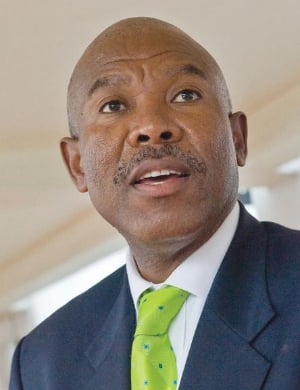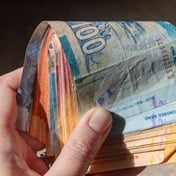
Inflation will hit 7.8% by the end of 2016 and economic growth will come in at under 1% for the year.
That’s the SA Reserve Bank’s new forecast – and the primary reason interest rates were hiked by 0.5 percentage points this week by the bank’s Monetary Policy Committee (MPC).
The move surprised enough people to trigger a rapid strengthening of the rand, from R16.44 to R16.09 against the dollar, the best it has been since the first week of the year.
Reserve Bank governor Lesetja Kganyago’s speech on Thursday afternoon emphasised the impact of the exchange rate and food inflation, caused by the drought ravaging this year’s staple food harvests.
Instead of average inflation of 6% – the bank’s previous prediction, we were now facing 6.8% in 2016, said Kganyago.
The average last year was 4.6%.
This year, inflation would peak towards the end of 2016 at 7.8%, went the forecast.
These are the highest inflation rates since 2009, but still exclude any additional electricity-tariff hikes Eskom might convince the National Energy Regulator of SA to allow this year.
The expected inflation would be above the Reserve Bank’s target of between 3% and 6% for the whole year, added Kganyago.
The high inflation will make it very hard for Treasury to even remotely maintain the value of the country’s social security net.
When inflation is driven by food inflation, the tendency is for the official headline rate to understate the actual inflation experienced by poorer households.
Already in December the official inflation rate of 5.2% masked higher inflation of 5.7% for the poorest 20% of consumers, according to Stats SA.
The central bank has been accused of bludgeoning South Africa with higher interest rates when the factors directly causing inflation, namely a drought and the exchange rate, are not really affected by hikes.
Technically, the distinction is between “demand-side shocks”, such as consumption rising rapidly due to massive spending on credit, and “supply-side shocks”, such as the sudden spike in food prices due to crop failure.
Members of the MPC fielded questions about it on Thursday.
Rashad Cassim, head of the Reserve Bank’s economic research and statistics department, called it a “luxury” for a central bank to find itself fighting demand-side inflation.
He defended the hike, claiming it did not amount to “responding crudely” to the effects of the drought and the rand.
The interest rate’s “critical function is to ensure supply shocks do not feed into second-round effects”, he told journalists.
Hiking rates to battle supply-side shocks was not as effective, but “not useless”, said Cassim.
Brian Kahn, Kganyago’s adviser, tried to placate concerns about how the rate would hurt indebted consumers.
Unlike during the previous period or rising rates in 2006 to 2008, consumer debt was now more likely to be unsecured and subject to a fixed interest rate, he said.
That meant the week’s hike should not increase the burden of paying existing debt too much.
Making new debt more expensive was, however, more or less the whole point of the exercise.
The effect of the rate hike – and the rate hikes that would almost certainly follow it – would, however, be tempered to some extent by new regulations introduced last year by the department of trade and industry (the dti).
These are new maximum legal interest rates using a new formula for passing the central bank’s repo rate through to consumers. In a nutshell, the rule now is that a 1% increase in the repo raises the maximum rate on credit cards and most loans by 1%. Previously, a 1% repo hike would have made most of the maximum rates go up by 2.2%.
. This week’s hike raises the repo rate from 6.25% to 6.75%.
. That raises the bank’s benchmark “prime” interest rate from 9.75% to 10.25%.
. Under the new dti rules, the maximum interest on a credit card goes from 19.75% to 20.25%.




 Publications
Publications
 Partners
Partners








